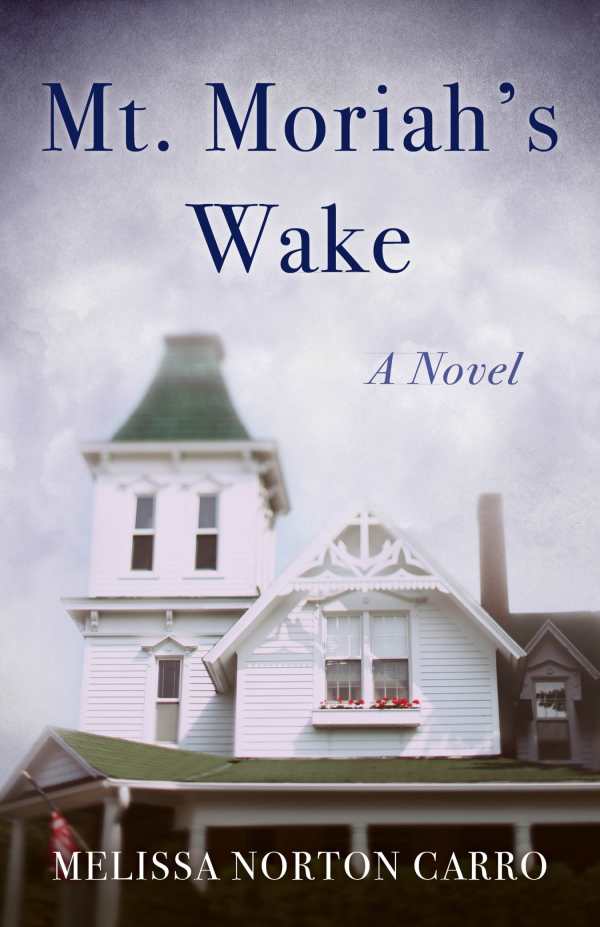Mt. Moriah's Wake
A Novel
Mt. Moriah’s Wake is an eloquent novel in which a woman experiences a spiritual homecoming and embraces love.
In Melissa Norton Carro’s elegiac novel Mt. Moriah’s Wake, a woman confronts grief about her past and her resultant disbelief in God.
Joanna, whose parents died when she was young, was raised by her Aunt Doro, who ran a bed and breakfast. When she’s twenty-six, she returns to her hometown for Doro’s funeral. From this dynamic opening—which blends the casket viewing and funeral with flashbacks to Joanna’s childhood, and her young adulthood at a city advertising firm—Joanna is established as a cagey, pained, and attentive lead. Her memories of loved ones awaken as she greets the townsfolk she once knew well.
Doro is established as a warm, bracing surrogate mother who met her challenges with practicality and optimism. Joanna’s memories of her are colorful, and her months-of-the-year themed inn is set up as a haven. In the present, Doro’s widower, who is also a preacher, is a wise, steadying force. His sermon on God’s still small voice is instrumental to Joanna, alongside his other advice.
The book’s brief chapters center on images, people, and striking metaphors; one finds Joanna standing on train tracks to tempt fate. They combine to develop understanding about the origins of Joanna’s marriage, and its recent strain; about Grace, her best friend, who was murdered just after college, and who is idealized in Joanna’s limited memories of her; about Joanna’s work; and how Joanna was raised in Doro’s inn. They are poignant in depicting the events that contributed to Joanna’s self-isolation. There are clear descriptions of her time in Chicago, too, where she submerged her dreams of becoming a writer and depended on alcohol. These experiences are tempered by her charming meetings with the coworker who became her husband.
Joanna’s guilt about surviving her loved ones is explained in realistic terms. Her inability to be hopeful about her future fuels her estrangement from others, and subtle tension builds around the context of her secrets, and questions of why her mourning is delayed. The resolution to these questions is uplifting and consistent.
The book’s nonlinear structure echoes the ebb and flow of Joanna’s grief: sudden encounters bring painful feelings back; at other times, reprieve feels possible. But sometimes, the seam between seeing people in the present, and the recollections that they trigger, is a too-visible, distracting device. Still, the novel is engaging as Joanna muses on what it’s like to choose between the familiarity of dwelling on painful experiences and the risky vulnerability that comes with moving forward.
Mt. Moriah’s Wake is an eloquent novel in which a woman experiences a spiritual homecoming and embraces love.
Reviewed by
Karen Rigby
Disclosure: This article is not an endorsement, but a review. The publisher of this book provided free copies of the book and paid a small fee to have their book reviewed by a professional reviewer. Foreword Reviews and Clarion Reviews make no guarantee that the publisher will receive a positive review. Foreword Magazine, Inc. is disclosing this in accordance with the Federal Trade Commission’s 16 CFR, Part 255.

